Women still fighting for equality 100 years after winning voting rights in Oregon
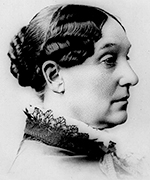
Duniway
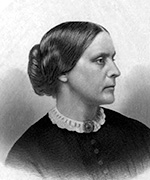
Anthony

Usrey
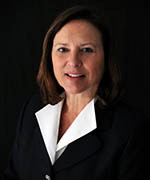
Fischer
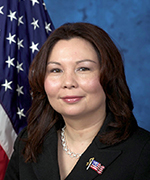
Duckworth
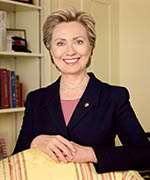
Clinton
Photos provided by: Sabrina Bidwell (The Mainstream) and John Worr (Department of Vetran's Affairs)
This month marks the 100 year anniversary of women winning the right to vote in Oregon in 1912. It took twenty eight years and six attempts. The first attempt came in November of 1884 which failed by 72 percent of the state-wide vote.
The significance of the women’s suffrage movement is illustrated by the comparison to the ratification of the 15th Amendment to the U.S. Constitution on Feb. 3, 1870. This gave African American men the right to vote despite the presence of significant racism 50 years before women would receive voting rights nationally.
Abigail Scott Duniway led the women of Oregon to the vote eight years before the right would be given to women nationally. Duniway also led the women of Idaho Territory to the vote in 1896 and helped influence the suffrage movement in Washington State where women won voting rights in 1910.
There was opposition for Duniway on many fronts, even within her own family. Her brother Harold Scott was against women voting and used his position as editor of The Oregonian to publish anti-suffrage articles. In response, Duniway founded and published her own newspaper, The New Northwest. The paper was founded in part to present the case for women’s suffrage.
Duniway’s efforts attracted the attention of renowned suffragist Susan B. Anthony in 1871. Anthony’s life was commemorated in 1979 when $1 coins with her likeness were minted for three years. Duniway accompanied Anthony on a tour of Oregon and Washington during which they gave speeches in favor of women’s suffrage.
These speeches were given in a time when it was considered inappropriate for a woman to speak in public. Despite this fact, not only did Duniway and Anthony speak, they lectured to men and women alike.
The suffrage movement received a great deal of opposition from tavern owners in particular because there was concern that women would shut the taverns down if given the right to vote.
On the day the two suffragists were to speak in Roseburg, a local tavern owner threw a party to attract attention away from the suffragists. Despite this effort, Duniway’s and Anthony’s appearance went forward in a local Methodist church.
UCC Communication Studies instructor, Paula Usrey found a role model in Anthony. Usrey has taken great pains to create a costume of authentic period clothing and gives presentations both on campus and in the community during which she speaks as Anthony, providing viewers with a connection to this remarkable American.
Usrey says she was impressed by Anthony’s beliefs that communication is a big part of being a good citizen. This belief led Anthony to overcome significant communication anxiety in order to be more effective in winning voting rights for women.
Women have made many steps forward since November, 1912. They have become the nation’s largest voting bloc since the 19th Amendment, ratified in 1920, gave women the right to vote nationally, making them the last citizens to get the vote and the ones to do the most with it.
However, some argue that times haven’t changed enough because the U.S. has yet to see a female president.
When the primaries for the 2008 presidential election began, Hilary Clinton was the presumptive nominee and led in the delegate count after Super Tuesday. However, Clinton was saddled with the fact that she had voted to authorize the Iraq war, a big issue that year.
Clinton’s chief rival for the nomination, Barack Obama, was able to point to his documented opposition to the war. Despite Clinton’s Iraq war vote, the race still remained very competitive right down to the nominating convention.
This competitive race proves that the American people can see a well-qualified woman as a realistic choice for the highest office in the land.
But stereotypes and biases remain, “If a woman shows the strength to be commander in chief, she is seen as not appropriately feminine. But if she shows any emotion, people wonder if she can handle a crisis,” Usrey pointed out, referencing tearful moment Clinton had in New Hampshire during the 2008 presidential primaries.
Usrey continued, “If a man cries, Speaker of the House John Boehner for instance, it is praised as proof that he can be sensitive,” illustrating the existence of double standards.
Our most recent elections yielded plenty of good news for women. One of the issues was the so-called “Republican war on women.” The Republicans lost ground on every front in the Nov. 6 elections.
Some are saying that this was partly due to the women of America saying that they would not stand for rollbacks of their reproductive rights, the limiting of services for victims of domestic violence, or the opposition to fair pay for women.
The voice of women was heard loudly in Missouri in response comments made by U.S. Senate candidate Republican Congressman Todd Akin. He said that if a woman is legitimately raped, she could not become pregnant.
His opponent, Democrat Claire McCaskill’s re-election was thought to be a lost cause with the democratic president unpopular in her state and her opponent backed by tens of millions of corporate dollars. McCaskill fought back and won re-election by 16 percentage points.
Nebraska State Senator, Republican Deb Fischer became the first woman elected to the U.S. Senate from her state.
On Tuesday, New Hampshire became the first state to have a woman governor and a congressional delegation made up entirely of women.
A total of 20 women will now serve in the U.S. Senate, the highest number that body has ever had. In fact, 42 percent of the Senate races in this year’s election involved women and women won79 percent of the races they were in.
In the U.S. Congress, Tammy Duckworth, an Iraqi war veteran who was the first woman to pilot Blackhawk helicopters in that war and who lost both legs doing so, was elected in the state of Illinois last Tuesday.
Duckworth, Fischer, McCaskill, Clinton, Duniway, Anthony, Usrey and countless others have shown that the women of this nation will fight for and win equality on every front.
| The Mainstream is a student publication of Umpqua Community College. | About us | Advertising | Archives |
